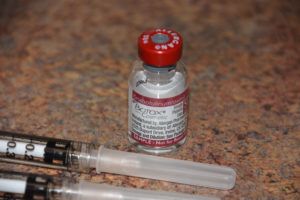
Recent research from an oculoplastic surgeon in Dallas has resulted in a patent-pending dietary supplement combining zinc and phytase (trademarked as ZYTAZE™) in which an initial clinical study showed improved results with Botox. Over 90% of the patients in their study (41 out of 44 patients) who took the oral supplements showed increased responsiveness to Botox in the treatment of blepharospasm, an uncommon form of eyelid twitching. The study concluded that the Botox seemed to last longer and with greater effect. No mechanism has yet been suggested as to how this combination supplement may prolong Botox’s neuromuscular blockade.
Does this mean we can start prescribing this supplement, or even zinc, to our patients in the hope of making Botox better? While such study results are interesting, they are far from conclusive. Most, if not all, of the patients in this study had blepharospasm, an abnormal neuromuscular interaction. This should not be confused with a normal neuromuscular synapse in the cosmetic patient. Whether such findings will occur as in this study requires a much larger blinded study which I am sure the researchers are currently doing. Recruiting subjects for this kind of cosmetic research would certainly not be a problem.
As appealing as the concept of an oral supplement is to improve the effect of a pharmaceutical drug, it is more science or just hope? Much of the supplement world is often more of the latter. Scientific proof is hard to come by and much of the evidence of their benefits is testimonial and theoretical. This work is novel and will attract a lot of attention by many Botox patients. Until some real science is put forth, I will remain optimistic but skeptical.
Dr. Barry Eppley
Indianapolis, Indiana


